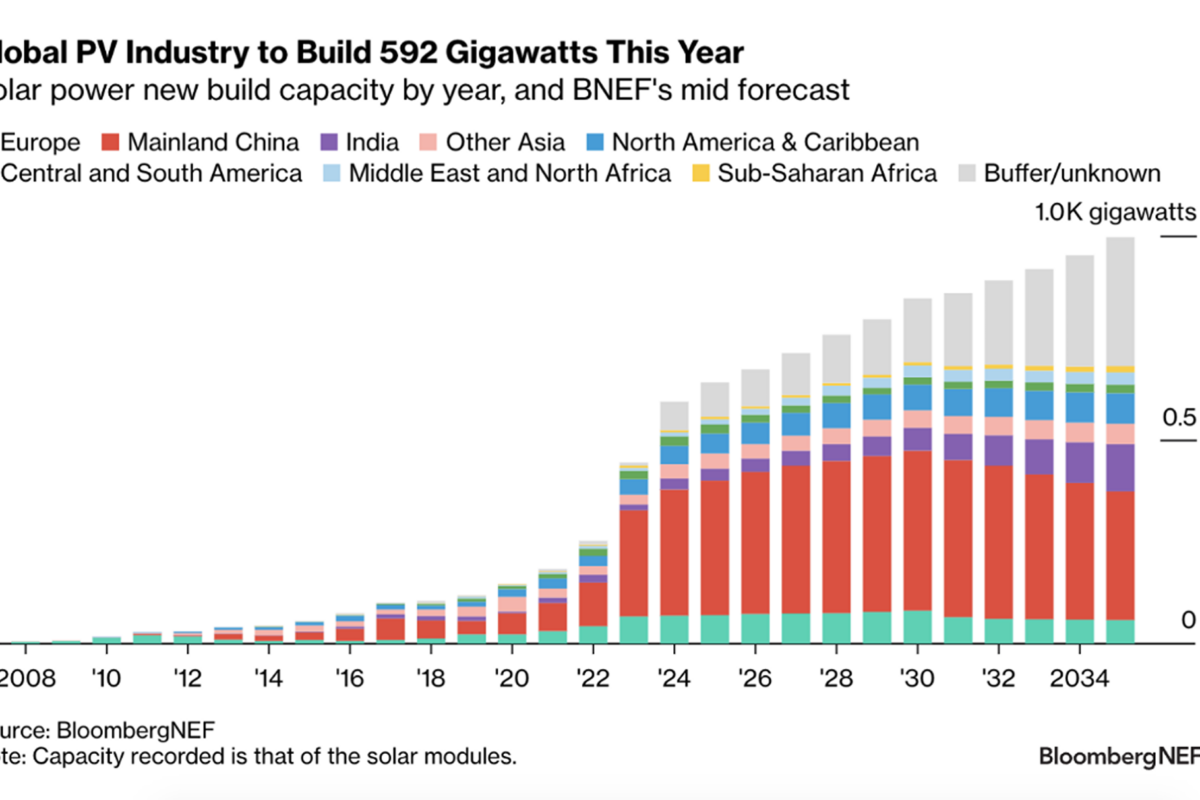According to Greece’s electricity market operator LAGIE, the country did not install new solar PV capacity in 2016. The latest statistics published recently by LAGIE say there was 1 MW of ground-mount PV built in 2016, but this could also prove to be a statistical miscalculation – LAGIE’s data vary very little sometimes between months.
However, LAGIE’s data do not include net metering installations, and based on a recent report published by Greece’s Electricity Distribution Network Operator (HEDNO) the country installed 337 new net metered PV systems last year, totalling 4.2 MW. Overall, since May 2015, when HEDNO started receiving applications for metering systems, Greece has installed 5.8 MW of net metering PV capacity dispersed across 443 systems. There is a further 17.57 MW of PV capacity for which HEDNO has also received applications, and some of this is already under construction.
Greece’s PV capacity consists of 2230 MW of ground-mount systems and 381 MW of rooftop PV.
Net metering hopes?
The question should rather be if Greece’s solar PV sector can still base its revival hopes on the net metering scheme.
Theoretically, Greece has plenty of the elements needed for net metering success, specifically via business and commercial applications. However, with net metering “growth is very slow because there is a general stagnation in investment,” Stelios Psomas, policy advisor at the Hellenic Association of Photovoltaic Companies (HELAPCO) told pv magazine. “People have no confidence [in the economy] and do not invest even in small projects.”
HELAPCO has criticized the slow administrative process, arguing that the time of five to six months that is needed on average from the time an investor submits its net metering application until the project’s connection to the grid is too long and needs to be shortened.
Psomas added that should the government free the net metering investors from the electricity fee, payable by all Greece’s electricity consumers in favor of renewable energy development, then the sector would receive an additional boost. Currently, net metering investors pay this fee only for the part of the electricity they consume from the grid.
The unworkable electricity market
The fee Psomas refers to is actually at the epicentre of a storm that has hit Greece’s electricity market. Psomas’ recommendation could make it even worse.
Greece has promised its international lenders to eliminate the deficit of the fund subsidizing its renewable power sector. The fund’s income depends on the electricity fee too. A solution to close the fund’s deficit gap would be to increase the electricity fee, which would also increase electricity bills. To avoid public anger, the government rather clumsily worked out an alternative solution. It asked the electricity suppliers to contribute to the country’s renewable energy fund.
What followed is a disaster. The electricity suppliers’ contribution to the fund reached very high levels that the suppliers claim they cannot cope with. This worsened the situation for Greece’s state-owned utility, the PPC, which controls about 90% of the retail market, but whose customers owe it several billion euros in electricity bills.
Greece applies a relaxed policy for bad electricity bills payers, while reliable customers increasingly move to private electricity suppliers. The situation for the PPC will become worse in the following years, because policy-makers have forced it to reduce its share in the retail market and allow competition with the private sector.
The government is now forced to reconsider the method for calculating electricity suppliers’ contribution to the renewable energy fund.
Photovoltaic power producers also feel the heat. LAGIE said earlier this month that it is now paying Greece’s renewable power generators for the electricity they produced in June last year, a 7 month delay.
Electricity bills and costs reduce through competition, not through moving fees from here to there and making discounts to this or the other stakeholder based on the politics of the time. Greece needs a transparent electricity market framework that will encourage investors to step in. Consecutive Greek governments have been incompetent and reluctant to make such a framework. The current government is furthermore ideologically against open markets. Given the country's ongoing economic problems, it is no wonder people and businesses do not have the incentive to invest in net metering or other forms of energy system.
This content is protected by copyright and may not be reused. If you want to cooperate with us and would like to reuse some of our content, please contact: editors@pv-magazine.com.



By submitting this form you agree to pv magazine using your data for the purposes of publishing your comment.
Your personal data will only be disclosed or otherwise transmitted to third parties for the purposes of spam filtering or if this is necessary for technical maintenance of the website. Any other transfer to third parties will not take place unless this is justified on the basis of applicable data protection regulations or if pv magazine is legally obliged to do so.
You may revoke this consent at any time with effect for the future, in which case your personal data will be deleted immediately. Otherwise, your data will be deleted if pv magazine has processed your request or the purpose of data storage is fulfilled.
Further information on data privacy can be found in our Data Protection Policy.